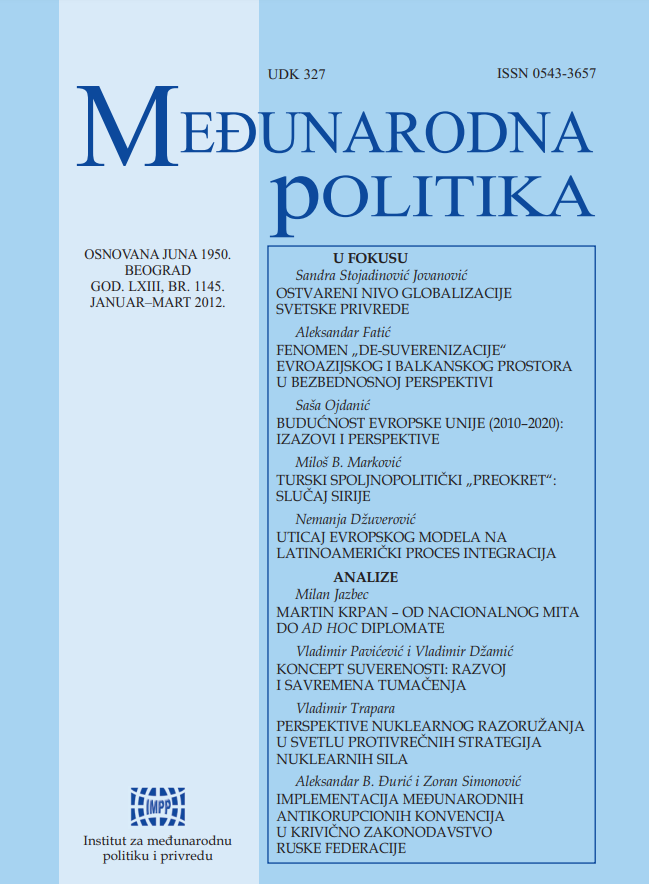Fenomen „de-suverenizacije“ evroazijskog i balkanskog prostora u bezbednosnoj perspektivi
The Phenomenon of “De-Soveregnization” Of Euro-Asia and the Balkans in Security Perspectives
Author(s): Aleksandar Fatić, Aleksandar FatićSubject(s): Governance, Security and defense, Geopolitics
Published by: Институт за међународну политику и привреду
Keywords: NATO; Russia; GUUAM; Shanghai Five; SCO; OSCE; Partnership for Peace; geostrategy; energy security
Summary/Abstract: Euro-Asian security integrations take place within a plethora of organizations and initiatives, yet those most relevant to the security concerns of the Western Balkans inevitably maintain a key reference point at NATO and PfP. While the initiatives inspired by the Russian Federation, due to legitimate Russian security concerns arising from NATO’s expansion plans, are primarily motivated by a desire to provide various alternatives to NATO as a unique European instrument of collective security, the experience in EuroAsia so far has proven less than successful in accomplishing this goal. Similarly, the dilemmas in the Western Balkans, now focused on Serbia as factually the only country that is not either a NATO member, or part of the NATO enlargement process, need to be informed by this relative lack of success of Russia’s security initiatives in the Euro-Asian area. While the various aspects of security that connect Serbia and Euro-Asia — primarily the energy security considerations — do generate their own dimension of the impending deliberations with regard to the trans-Atlantic security integrations, the experiences of the Euro-Asian countries need to be factored in when decisions in the Western Balkans are made on the future course of such integrations
Journal: Међународнa пoлитика
- Issue Year: 63/2012
- Issue No: 1145
- Page Range: 16-30
- Page Count: 15
- Language: Serbian

